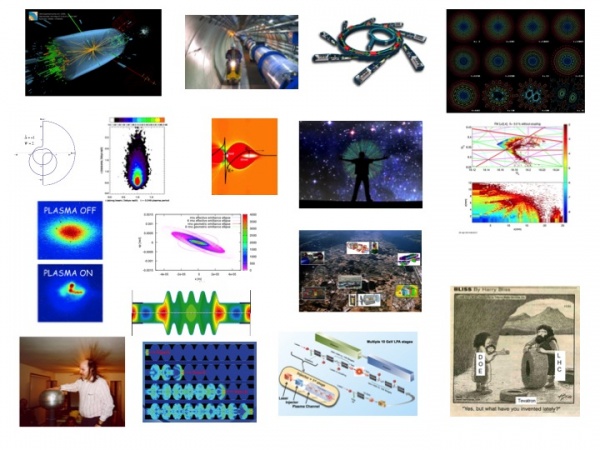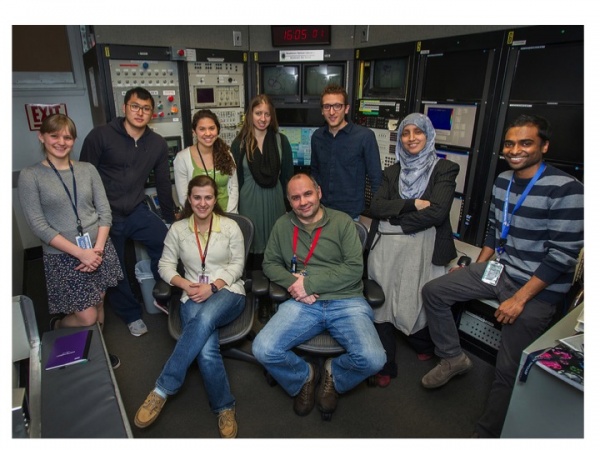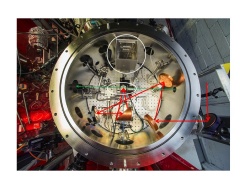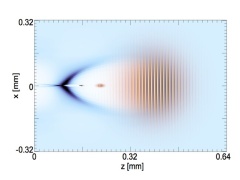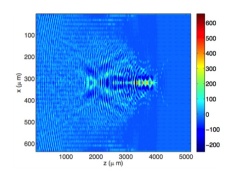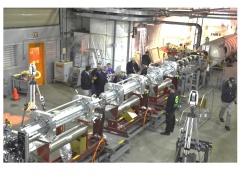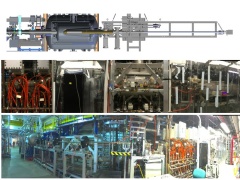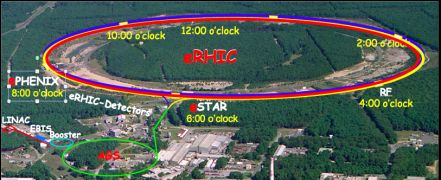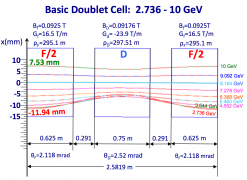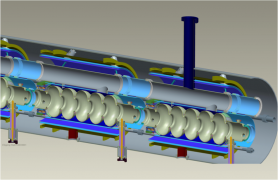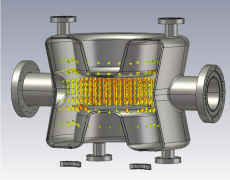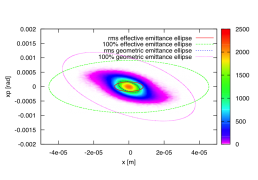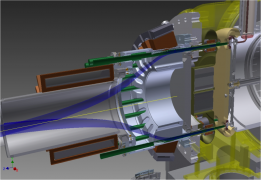Difference between revisions of "Main Page"
(→Center for Accelerator Science and Education) |
|||
| Line 25: | Line 25: | ||
<div style="padding: .4em .9em .9em"> | <div style="padding: .4em .9em .9em"> | ||
<li><span style="color: blue"> | <li><span style="color: blue"> | ||
| − | CASE (SBU & BNL), in collaboration with Cornell University and FERMI National Accelerator Laboratory, starting Ernest Courant Traineeship in Accelerator Science & Engineering funded by High Energy Physics office of the US Department of Energy [[media:Abstract.pdf |ECTA&E]]. This MS and PhD program will provide up two years of support to eligible graduate students (US citizens or US permanent residents) for in-depth studies of following topics: (a) Physics of large accelerators and systems engineering; (b) Superconducting radiofrequency accelerator physics and engineering; (c) Radiofrequency power system engineering, and (d) Cryogenic systems engineering (especially liquid helium systems). Students in the traineeship program who complete the necessary courses (12 or more credits in accelerator science and engineering) and a thesis will be issued a Certificate in Accelerator Science and Engineering with specialization in one of the four areas listed above. If you are interested in joining this traineeship contact one of SBU professors listed below: V.N Litvinenko, T. Hemmick, N. Vafaei-Najafabadi (Department of Physics and Astronomy), J. Longtin (Department of Mechanical Engineering), T. Robertazzi , J. Parekh and J. Liu (Department of Electrical and Computer Engineering) </span> | + | CASE (SBU & BNL), in collaboration with Cornell University and FERMI National Accelerator Laboratory, starting Ernest Courant Traineeship in Accelerator Science & Engineering funded by High Energy Physics office of the US Department of Energy [[media:Abstract.pdf |ECTA&E]]. This MS and PhD program will provide up two years of support to eligible graduate students (US citizens or US permanent residents) for in-depth studies of following topics: (a) Physics of large accelerators and systems engineering; (b) Superconducting radiofrequency accelerator physics and engineering; (c) Radiofrequency power system engineering, and (d) Cryogenic systems engineering (especially liquid helium systems). Students in the traineeship program who complete the necessary courses (12 or more credits in accelerator science and engineering) and a thesis will be issued a Certificate in Accelerator Science and Engineering with specialization in one of the four areas listed above. If you are interested in joining this traineeship contact one of SBU professors listed below: V.N Litvinenko, T. Hemmick, N. Vafaei-Najafabadi (Department of Physics and Astronomy), J. Longtin (Department of Mechanical Engineering), T. Robertazzi , J. Parekh and J. Liu (Department of Electrical and Computer Engineering) </span>|}* |
| − | |}* | + | |
| − | + | ||
Revision as of 17:11, 14 August 2019
Center for Accelerator Science and EducationICFA mini workshop: Coherent Electron Cooling – Theory, Simulations and Experiment Talks at: CASE seminars for graduate students and postdocs
|
